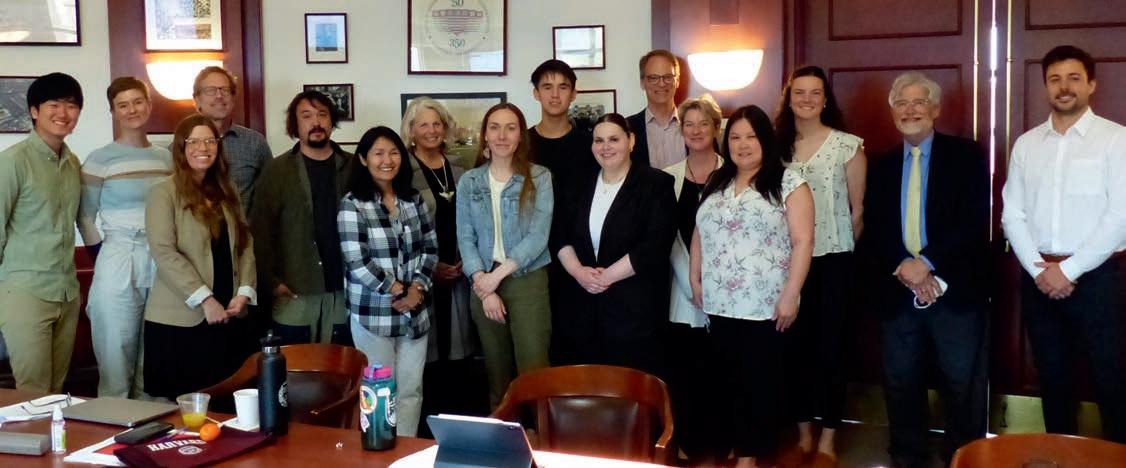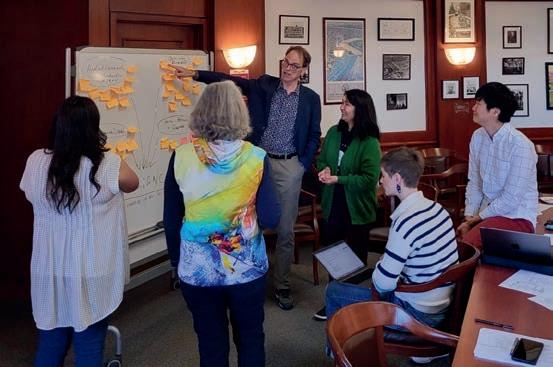
1 minute read
Discovery Workshop Continues Resilience Work Through Arctic Council Pause
Workshop participants pose for a group photo. From left to right: Isaac Kim (HKS), Ksenia Acquaviva (HKS), Brittany Janis (HKS), Joel Clement (HKS), Salik Frederiksen (WRH-Greenland), Cindy Dickson (AAC-Canada), Liane Benoit (AAC-Canada), Renan Mainville (AAC-Canada), Cole Rubulak (AAC-Canada), Raylene Mitchell (ICC-Canada), John Crump (ICC-Canada), Jen Spence (HKS), Nadine Kochuten (Aleut International), Gemma Holt (HKS), John Holdren (HKS), and Justin Barnes (Arctic Yearbook Assistant Editor)
On May 17, 2022, eight representatives from Arctic Indigenous Peoples’ Organizations from across the North American Arctic gathered at Harvard Kennedy School for a two-day Arctic Resilience Discovery Workshop. Organized by Arctic Initiative Senior Fellows Jen nifer Spence and Joel Clement, the workshop marked the initiation of a project designed to complement the Arctic Council Sustainable Development Working Group’s (SDWG) Advancing Arctic Resilience Project that is currently on hold due to the crisis in Ukraine. While Arctic Council activities remain on pause, the threats posed by accelerating Arctic warming to local communities continue to grow. The discovery workshop’s aim was to explore how a truly community-driven climate resilience project focused on addressing the risks posed by permafrost thaw might be designed and implemented, including how to ensure such a project is rooted in Indigenous knowledge, language, and values, and incorporates activities and results that are relevant and valuable to Arctic communities. The workshop participants came from the Arctic Athabaskan Council - Canada (AAC-Canada), the Aleut International Association (AIA), the Inuit Circumpolar Council - Canada (ICC-Canada), and the Association of World Reindeer Herders - Greenland (WRH-Greenland), bringing a wide range of knowledge, experiences, and perspectives to the table. Over the course of five sessions, participants highlighted the effects of permafrost thaw and related impacts on health, food and water security, infrastructure, economy, education, and culture. The group did not shy away from thoughtful discussions about the tremendous uncertainty and risk in the region, the role of colonialism in constraining resilience, and perceptions of the term resilience itself.











